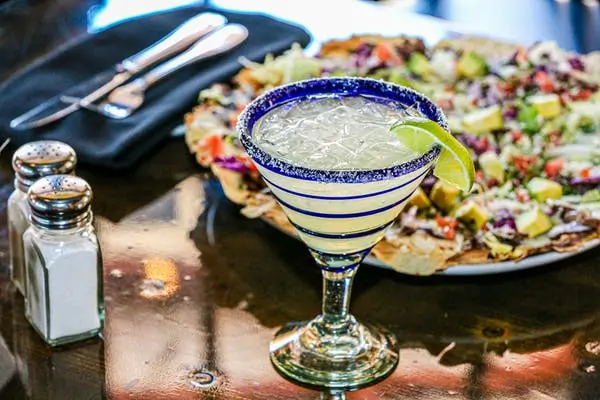An anti-anxiety diet is a dietary approach that focuses on foods that are believed to reduce anxiety symptoms. The idea behind the diet is to avoid foods known to cause or worsen anxiety. Find out which foods to eat and which to avoid to manage anxiety symptoms.
Eating certain foods may help reduce stress levels and improve overall mood while avoiding others can be beneficial as well. Let’s talk about some of the best food choices for reducing anxiety symptoms.
Anti-Anxiety Diet For Managing Symptoms
(I). Oatmeal
One of the best anti-anxiety foods to eat is oatmeal. Oatmeal contains high levels of magnesium, which helps relax muscles, as well as other essential vitamins and minerals like Vitamin B6, which helps regulate moods and serotonin production in the brain—both important for reducing anxiety symptoms.
(II). Omega 3 Fatty Acids
Omega-3 fatty acids found in fish such as salmon and tuna are another anti-anxiety diet that has been shown to reduce anxiety levels. These fatty acids have been linked with improved cognitive functioning, which helps regulate emotions like fear or worry associated with anxiousness.
They also contain natural anti-inflammatory properties, which may reduce physical tension caused by stress hormones released during periods of high stress or panic attacks related to an individual’s underlying condition(s).
(III). Magnesium-Rich Foods
adding magnesium-rich foods is also an anti-anxiety diet yu should consider. This could be very helpful in managing symptoms associated with anxiety. Magnesium plays an important role when it comes to regulating cortisol (the body’s primary “stress hormone”) levels.
Low intakes have been linked to higher rates of depression and generalized anxiety disorder. Some great choices would be dark leafy greens, nuts, beans, and lentils.
Other beneficial sources of anti-anxiety foods include walnuts, flaxseeds, and chia seeds—all rich sources of plant-based omega-3s.
On the other hand, there are some food items you should try to avoid if you suffer from chronic anxiety. First what are the causes of anxiety and can diet help manage the condition?
Causes Of Anxiety And Can Food Really Help?
Anxiety is referred to as a mental health disorder. It can be caused by a variety of factors, such as genetics, traumatic experiences, and medical conditions. Anxiety can also be brought on by stressors in one’s environment or lifestyle choices.
While anxiety cannot always be prevented or cured completely, there are steps one can take to reduce its effects and manage it better. One way to do this is through diet. What you eat has an impact on your overall physical and mental well-being, which includes your level of anxiety symptoms.
A healthy diet plays a vital role in reducing the severity of anxiety symptoms because certain foods have been found to have calming properties while others may worsen them due to their stimulating nature or high sugar content, which causes spikes in blood sugar levels followed by crashes that leave one feeling fatigued and anxious.
Foods to avoid when managing anxiety include the following:
- Red meat
- Caffeine
- Sugary snack
- Alcohol
- Processed food
- Fried food
- Salt
1. Red Meat
Red meat is one of those foods that should be avoided when trying to manage anxiety. It is high in saturated fat and cholesterol, which can increase inflammation in the body, leading to increased stress levels and worsening anxiety symptoms. Furthermore, red meat has been linked to an increased risk of certain cancers as well as heart disease.
Instead, lean proteins such as fish or chicken are better options for managing anxiety symptoms since they contain healthy fats that help reduce inflammation.
2. Caffeine
If you’re suffering from anxiety or depression, you should do all you can to avoid caffeine. Caffeine is a stimulant that can have both positive and negative effects on our health.
When it comes to managing anxiety symptoms, limiting or avoiding caffeine consumption can be beneficial. Caffeine has been linked to increased levels of stress hormones like cortisol and adrenaline in the body, which can worsen feelings of anxiety.
Furthermore, excessive caffeine consumption may cause insomnia or restlessness, exacerbating anxiety symptoms.
3. Sugary Snack
Another food group that should be avoided when looking at ways to reduce anxiety through dietary means is sugary snacks and drinks.
Sugary drinks, such as soda pop, contain high amounts of refined sugar, which spike blood glucose levels quickly followed by a rapid crash, resulting in fatigue or low energy states both physically and mentally, making one more vulnerable to feeling overwhelmed by emotions such as fear and worry, thus aggravating pre-existing anxiety.
Consuming large amounts of sugar causes prickles in insulin levels followed by sharp drops, leaving one tired and lethargic – something we don’t want during times when our bodies require more energy than usual due to the heightened emotional states experienced during anxiety attacks.
4. Alcohol
Alcohol consumption requires special consideration because, while it initially acts as a depressant, reducing inhibitions, heavy drinking causes brain changes that result in increased sensitivity, fear, and aggression, all of which contribute to a higher long-term risk of developing anxiety disorders.
5. Processed Foods
Also among the foods to avoid in order to manage anxiety-related issues are processed foods. Processed food items like canned soups and frozen dinners often contain preservatives, artificial flavors, and colors, which may lead to increased inflammation levels in the body, leading to heightened feelings of stress and anxiety.
6. Fried Foods
Another type of food that should be avoided by those suffering from an anxiety disorder is fried foods such as French fries, chicken nuggets, etc. These types of high-fat meals have been found to increase inflammation within the body, leading to worsened mood swings and elevated levels of restlessness and irritability.
7. Salt
High-salt diets have been linked directly to higher cortisol levels (the stress hormone). Therefore avoiding salty snacks might help reduce overall tension within body systems due to their calming effect on nerves and muscles alike, thereby alleviating some level of discomfort from being too “keyed up.”
Conclusion
An anti-anxiety diet should focus on foods that help suppress anxiety. Eating and avoiding certain kinds of food can help you feel calmer and more relaxed while reducing physical symptoms of stress such as headaches, stomachaches, muscle tension, and fatigue.

